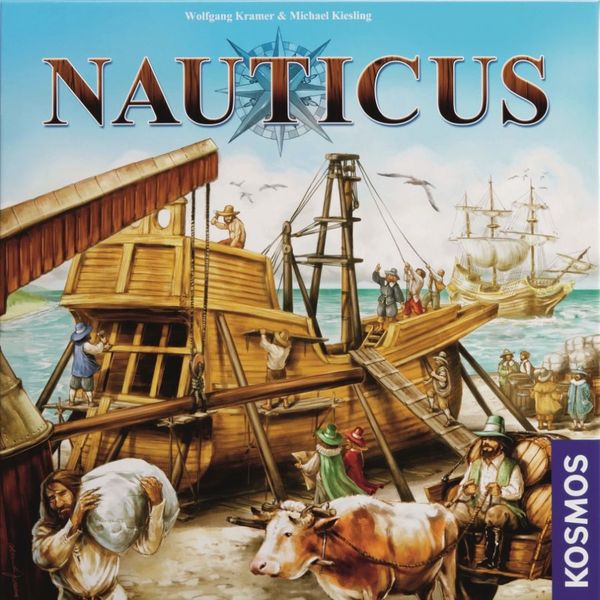Nauticus (2013) Board Game
Nauticus is a board game released in 2013, designed by Alexander Jung and published by KOSMOS. It falls under the categories of Economic, Nautical, and Transportation games, offering players a unique gameplay experience in the world of sea exploration and trade.
Game Components of Nauticus
How To Setup Nauticus
To set up the game, each player starts with a personal supply of workers and coins, and their own player board. The action tiles are shuffled and placed randomly on the action fields of the wheel. The round marker is set to the first round, and the start player is determined. Each player’s components, such as workers, coins, and tiles, must be kept visible on the table.
Gameplay Mechanics and Game Objective
Player Experience
In **Nauticus**, players are constantly engaged as they manage their resources, build ships, and transport goods. The game demands strategic planning, as larger ships provide more victory points but are harder to build. The dynamic action wheel system ensures that each round is different, and players must adapt their strategies accordingly. The transparency of all players’ resources keeps the game competitive and interactive.
Pros
Cons
Personal Thoughts on Nauticus
**Nauticus** is ideal for fans of strategic and economic games who enjoy managing multiple tasks and resources. It is particularly suited for experienced board game players due to its complexity and depth. However, new players who are willing to invest time in learning the rules will also find it rewarding. The game’s themes of shipbuilding and trade make it a unique and engaging addition to any board game collection.
We are supported by our audience. When you purchase through links on our site, we may earn an affiliate commission, at no extra cost for you. Learn more.

